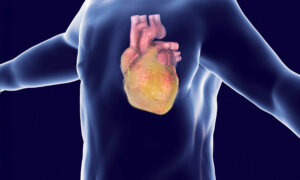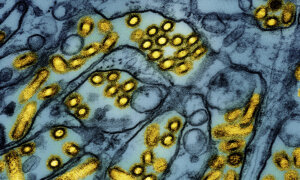Coffee aficionados have reason to rejoice. A September study from The Journal of Clinical Endocrinology & Metabolism found that coffee or caffeine consumption may offer significant protection against cardiometabolic multimorbidity (CM). This refers to having two or more disorders affecting the heart or metabolism, such as Type 2 diabetes, coronary heart disease, stroke, chronic kidney disease, or nonalcoholic fatty liver disease.
Since caffeine has the potential to adversely affect the heart in higher doses, it is welcome news that moderate amounts may actually help healthy people avoid the development of heart conditions.
Dietary caffeine intake at all levels was inversely proportional to new onset of disease, but moderate intake was linked to the lowest risk. The finding is timely, as a 2022 study published in the International Journal of Environmental Research and Public Health found that the prevalence of CM has risen to a severe level in recent years.
According to the 2022 study, between 2017 and 2018, the prevalence of cardiometabolic multimorbidity was 14.4 percent in the United States.
The three most common patterns of CM were hypertension and diabetes; hypertension, diabetes, and coronary heart disease; and hypertension and coronary heart disease.
Evidence
The JCEM study, a prospective investigation, found that coffee has a beneficial effect on cardiometabolic health. The evidence involved analyzing the risk of disease and the risk of death from CM.
Earlier observational studies indicated that there is an inverse relationship between tea, coffee, and caffeine consumption and the risk of a single cardiometabolic disease. In other words, higher coffee intake is related to a lower risk of developing a single one of these diseases. However, prior studies have not assessed the effect of consumption on having two or more such conditions, nor have they measured related biological factors.
To fill in this gap in research, the JCEM study analyzed data from the UK Biobank involving 172,315 caffeine consumers and 188,091 coffee and tea drinkers. The UK Biobank is a detailed dietary study of individuals ranging in age from 37 to 73 years. All participants were free of cardiometabolic disease at the beginning of the study.
Compared with non-consumers or consumers of less than 100 milligrams (mg) of caffeine per day, the intake of moderate amounts of coffee (three cups per day) or caffeine (200–300 mg per day) decreased the risk of new-onset CM by 48.1 or 40.7 percent, respectively. Additionally, moderate coffee or caffeine intake was inversely linked to almost every stage of CM. This means that the intake may help prevent development of a single cardiometabolic disease and offer protection against the progression to CM.
“The findings highlight that promoting moderate amounts of coffee or caffeine intake as a dietary habit to healthy people might have far-reaching benefits for the prevention of CM,” lead author Dr. Chaofu Ke, of the Department of Epidemiology and Biostatistics, School of Public Health at Suzhou Medical College of Soochow University, in Suzhou, China, wrote in a statement.
Death Risk From Cardiometabolic Disease
Further evidence from the JCEM study showed that people with a single cardiometabolic disease were twice as likely to die of any cause compared to those without such an illness. Those with CM had a nearly four- to seven-times increased risk of death from any cause.
CM was also associated with higher likelihoods of mental stress and loss of physical function compared with having a single cardiometabolic disease.
Sources of Caffeine
Caffeine levels found in common beverages:
- Coffee, regular brewed, nonspecialty: 113 to 247 mg
- Black tea: 71 mg
- Green tea: 37 mg
- Dark chocolate bar (1 ounce): 26 mg
- Carbonated soft drinks: 23 to 83 mg
- Energy drinks: 41 to 246 mg
Chocolate food products often have a high amount of sugar and fat, so it is best to limit their consumption to a judicious amount. Although sodas contain caffeine, because they also have sugar and other unhealthful ingredients, health experts don’t recommend them.
Energy drinks pose a health hazard, as they can contain high amounts of caffeine, along with other ingredients that the U.S. Food and Drug Administration (FDA) does not regulate. The National Institutes of Health (NIH) reports that a growing body of evidence shows that energy drinks involve serious risks.
The JCEM study participants got their caffeine from dietary sources rather than caffeine supplements, according to the statement. The demonstrated benefits of moderate caffeine intake do not apply to larger amounts of caffeine in supplements.
According to the FDA, such products represent a significant health threat, reporting that the difference between a safe and life-threatening amount is very small.
In light of all the above, healthy individuals who wish to add caffeine to their diet should stick with coffee, tea, and small amounts of chocolate.
Further Precautions and Risks
While the JCEM study suggested that moderate caffeine intake is beneficial for most healthy individuals, high intake was not, as it can cause serious heart problems, such as disorders in heart rhythm, as noted by the NIH.
Another factor to consider is caffeine sensitivity, which causes some people to experience side effects even from ingesting smaller amounts, according to an FDA article.
Signs of too much caffeine or caffeine sensitivity include:
- Heart palpitations
- Higher heart rate
- High blood pressure
- Anxiety
- Insomnia
- Headache
- Nausea
- Jitters
It is worth a reminder that the JCEM study participants were free of cardiometabolic disease at the onset. This begs the question: Should people with heart disease start taking 200–300 mg of caffeine?
The Epoch Times put the question to cardiologist Dr. Leonard Pianko, who urges people with heart disease to pay attention to how the caffeine source affects them.
“Caffeine is a stimulant and logically should increase blood pressure and heart rate, which it does in some people,” Pianko wrote in an email. “However, in this large study, those who drank a moderate amount of coffee had the lowest risk for new-onset CM.”
Pianko stated that he is a big proponent of preliminary studies because they allow the medical community to discover things that may be counterintuitive. That said, he advises caution, as one study is not enough to make long-term medical observations.
Consequently, he believes that moderation is the key until proven otherwise.
“Listen to your body and determine, with the help of your physician, your caffeine sensitivity,” he wrote, addressing people with heart disease. “If your blood pressure or heart rate increases, decrease your caffeine intake. If your body can tolerate up to three cups of coffee, continue to enjoy your cup of Joe.”













